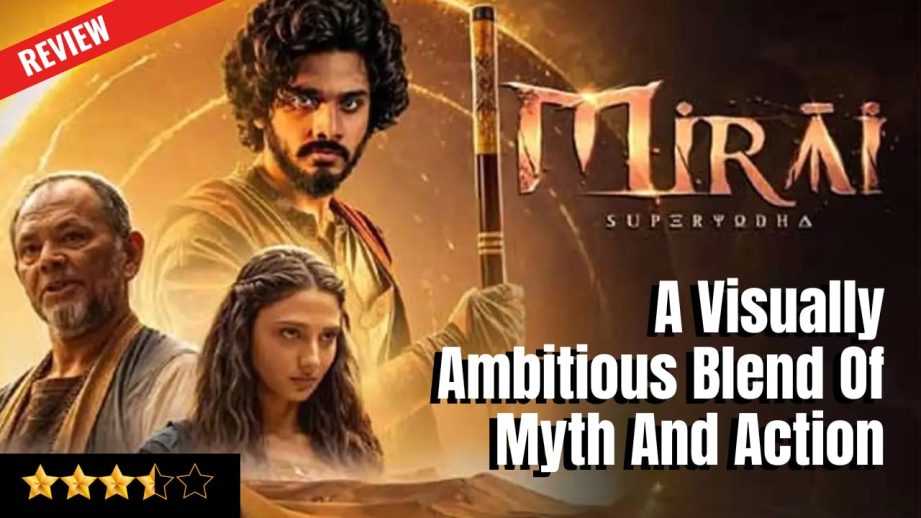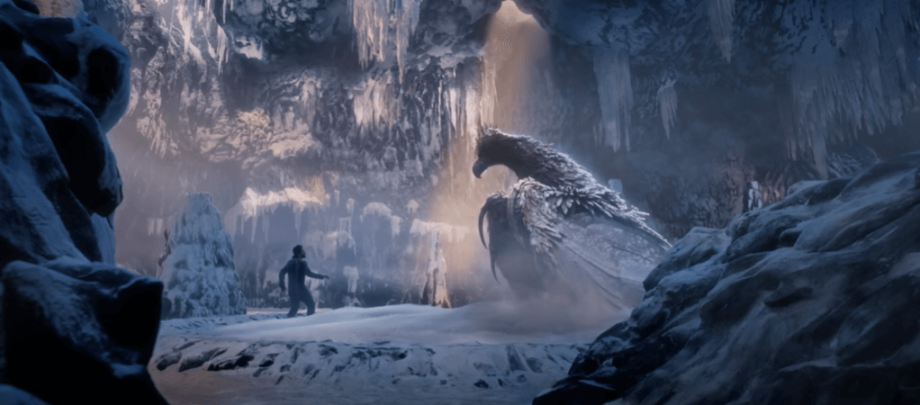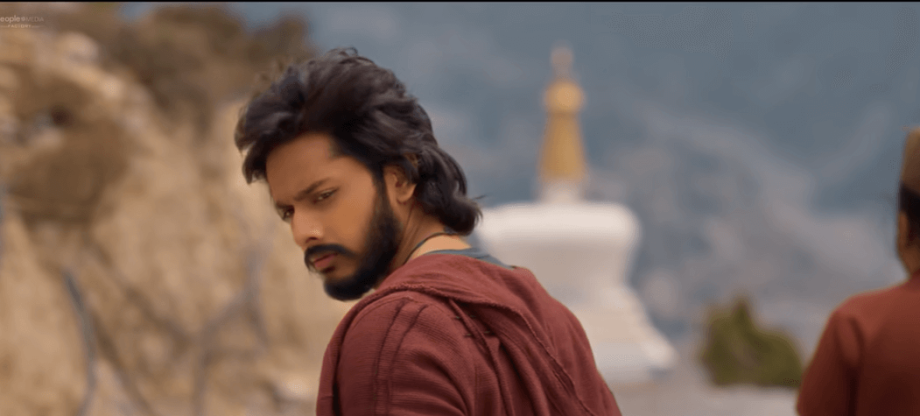
Karthik Gattamneni’s Mirai is a film that wastes no time drawing you into its world — one where myth and modernity collide, and ancient secrets echo through a contemporary lens. With Teja Sajja leading the charge and Gattamneni doubling as director and cinematographer, Mirai unfurls as a visually immersive fantasy-action adventure that moves with urgency and confidence.
There’s an energy to the film. From sweeping aerial shots of sacred landscapes to fast-cut action sequences rooted in legend, Mirai establishes a tone that is bold and stylized. This is a film that thrives on momentum — the pacing is relentless, sometimes deliberately so — and the emphasis is clearly on spectacle and scale. As a visual product, it’s easily among the more polished offerings in the genre, particularly considering its mid-range budget.

Teja Sajja fits this world well. He brings a charismatic ease to Vedha, a character whose life takes a sharp turn when his fate becomes entangled with the remnants of a mythical past. His screen presence is commanding without being overbearing, and he handles the physical demands of the role with assurance. Opposite him, Manchu Manoj returns to the screen with controlled intensity, delivering a performance that feels measured yet impactful. His portrayal of Mahabir Lama is marked by restraint rather than theatrics, which serves the character well.

Shriya Saran brings a dignified presence to her role, adding emotional texture to the film. Her character, Ambica, docks several key moments and brings a sense of purpose that complements the film’s more action-driven sequences.
Where Mirai truly excels is in its presentation. Gattamneni’s visual sensibility gives the film a cinematic richness. The use of light, color, and visual symbolism elevates several sequences, particularly those grounded in mythology. Gowra Hari’s background score reinforces the narrative beats with power and precision, adding a layer of urgency that aligns well with the film’s tone.

The film’s structure, while ambitious, leans heavily on pace, sometimes at the expense of clarity. Transitions are swift, and developments arrive with little pause — a choice that keeps the energy high but occasionally challenges continuity. Still, this rhythm is consistent with the film’s overall design: Mirai is not about slowing down. It’s about keeping the stakes high and the action moving.
Mirai is a solid, confident step. It’s not just a showcase for visual storytelling — it’s also a platform for Teja Sajja to further define his space as a young action lead. While there’s room for the story to settle and deepen, Mirai delivers where it promises: high-concept fantasy, immersive visuals, and a rousing theatrical experience.
IWMBuzz rates it 3.5 stars.
